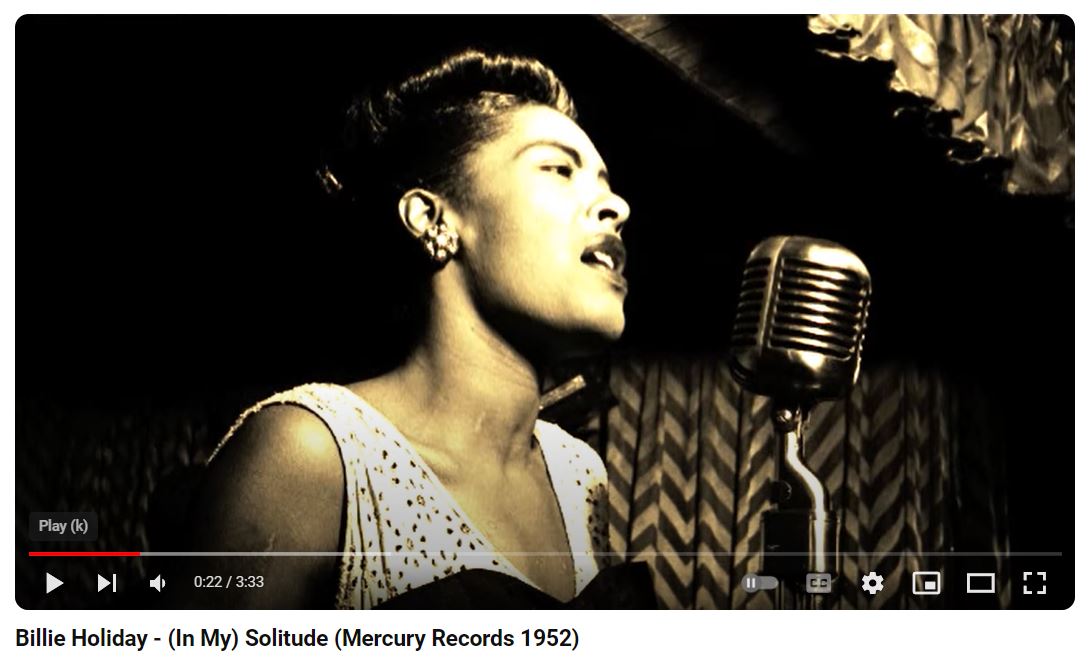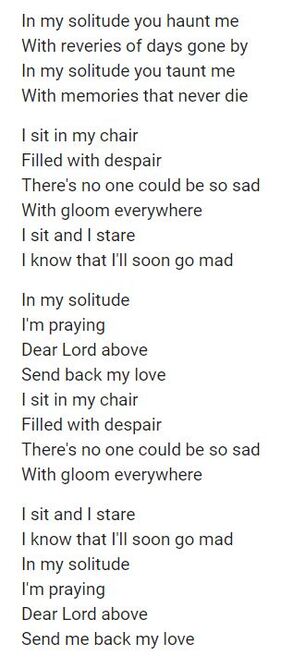Here’s an interesting experiment involving a poem – actually lyrics to a song – to see how the meaning might change depending upon perspective. I’ll get to the lyrics in a minute.
First, my recent posts have centered on Dickinson’s reclusiveness and her self-isolation. In particular, I posted and commented on her poem “There is a solitude of space,” and I included links to two discussions of the poem – and interestingly, both of these blog posts focused on the poem in relation to the COVID lockdown.
Yesterday, I posted something humorous related to Dickinson’s self-selected isolation, a scene from “The Simpsons” season 8 finale where Lisa mentions Dickinson: ““Okay, I'm not gonna give up. Solitude never hurt anyone. Emily Dickinson lived alone, and she wrote some of the most beautiful poetry the world has ever known.” **dramatic pause**, “Then went crazy as a loon.”
| Today I have something a little different: Below are the lyrics to Duke Ellington’s jazz ballad, “(In My) Solitude” (with lyrics by Eddie DeLange and Irving Mills). Here are the opening lines: “In my solitude you haunt me / With reveries of days gone by / In my solitude you taunt me / With memories that never die.” Of course, with one obvious interpretation of the poem (i.e., the lyrics), the speaker in the song is thinking and speaking about a former lover. Now re-read the lyrics – and this time, think that the speaker is alone and in a moment of self-reflection -- and they’re singing about themself (yes, the good ol' singular-they). Anyway, just food for thought – on how you can read and then re-read a poem, and look at it from two or more perspectives to see how the meaning and mood of the poem might change. Click the pic below to listen to Billie Holiday sing "(In My) Solitude": |


 RSS Feed
RSS Feed
